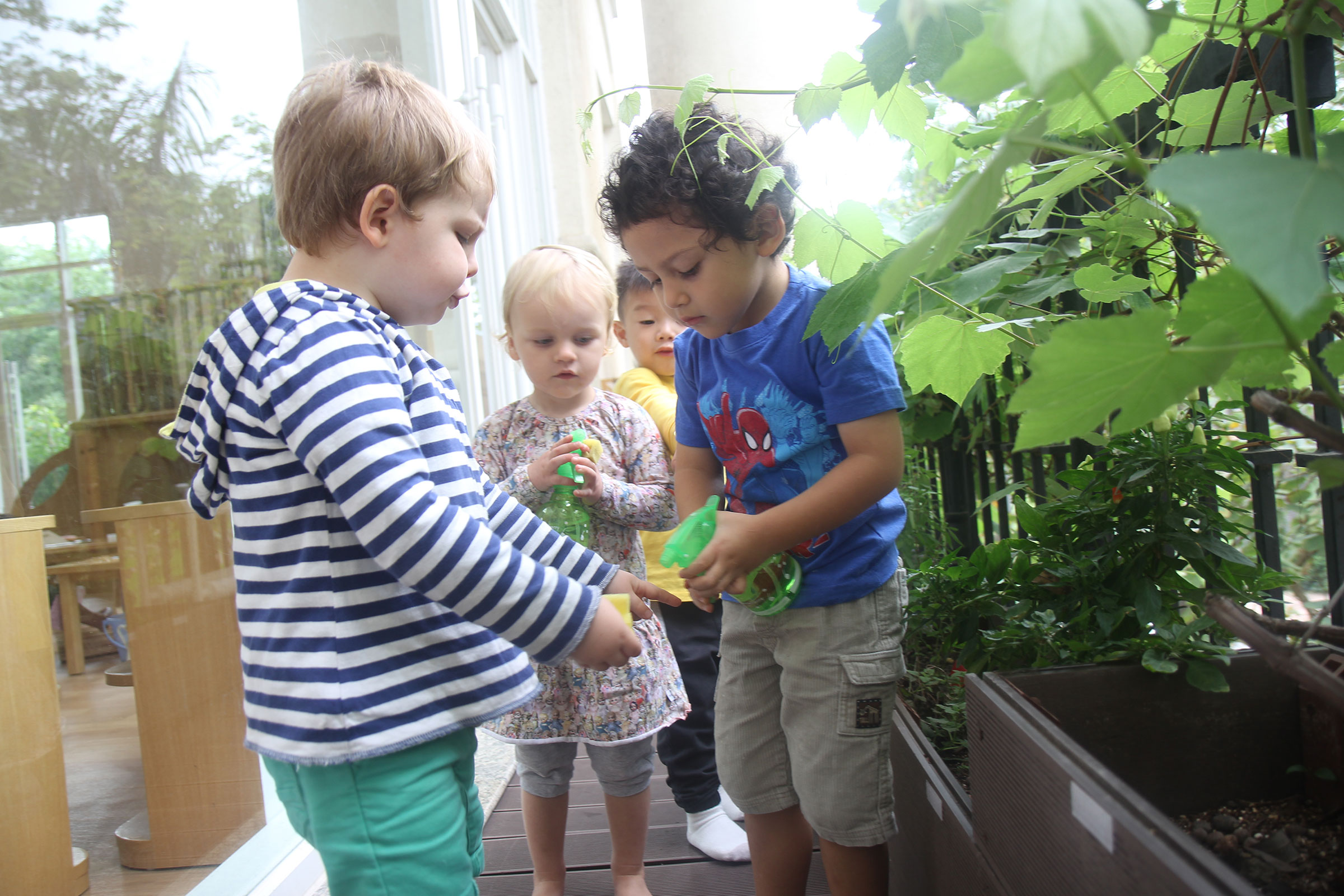First, we firmly believe that any social group is only as strong as its weakest member, so we strongly emphasise building strong individuals. The child under 2.5 is very ego-centric (which is quite normal) and gradually, as they become aware and accepting of others, their understanding of other’s rights expands. By accepting the child’s ego-centric state, we set the stage for accepting everyone. By the age of 2.5 years, this once ego-centric individual is becoming a social individual. This process requires knowledge and practice. In a Montessori environment for children from 2.5 to 6+ years as a normal part of our everyday life, we explore how humans relate to each other, depending on the social norms of the culture(s) the child is living in. We use Grace and Courtesy exercises to give examples of the language used in certain social situations, e., excuse me, please, thank you, etc. We role-play certain social situations and allow children to practice what to do/say in these situations. When a child spontaneously uses social customs, we know they have begun to understand and internalize them. We don’t force a child to say please or thank you, waiting for this to evolve spontaneously, as these terms are simply language used in certain social situations. As the child absorbs language they absorb “social language” as well. With practice, and with adult support, the children create a lovely social unit in which everyone is aware of the others, everyone helps each other with challenges, and everyone is concerned with the well-being of others. If a child says an unkind thing, later, unrelated to the incident, we gather a small group of children and talk about feelings, how one feels when someone says something unkind. We give language to use in that type of situation. We also find that taking care of plants and animals as a daily activity in the environment allows children a different way to practice caring for “others.”
Montessori spoke of “cohesion in the social unit” when referring to what happens when children spend 3 years in the same environment with mainly the same group of children and adults. When everyone shows respect for all living things a social unit gradually forms, a small society in which everyone is aware of and concerned for all the others. This small classroom-based society gradually expands to the entire school. The older children work with and give information to the younger children; all the children in the school are considered “teachers” as everyone has some information that can be shared. With a deep level of respect, kindness, and concern, a normal social unit simply evolves over time.
